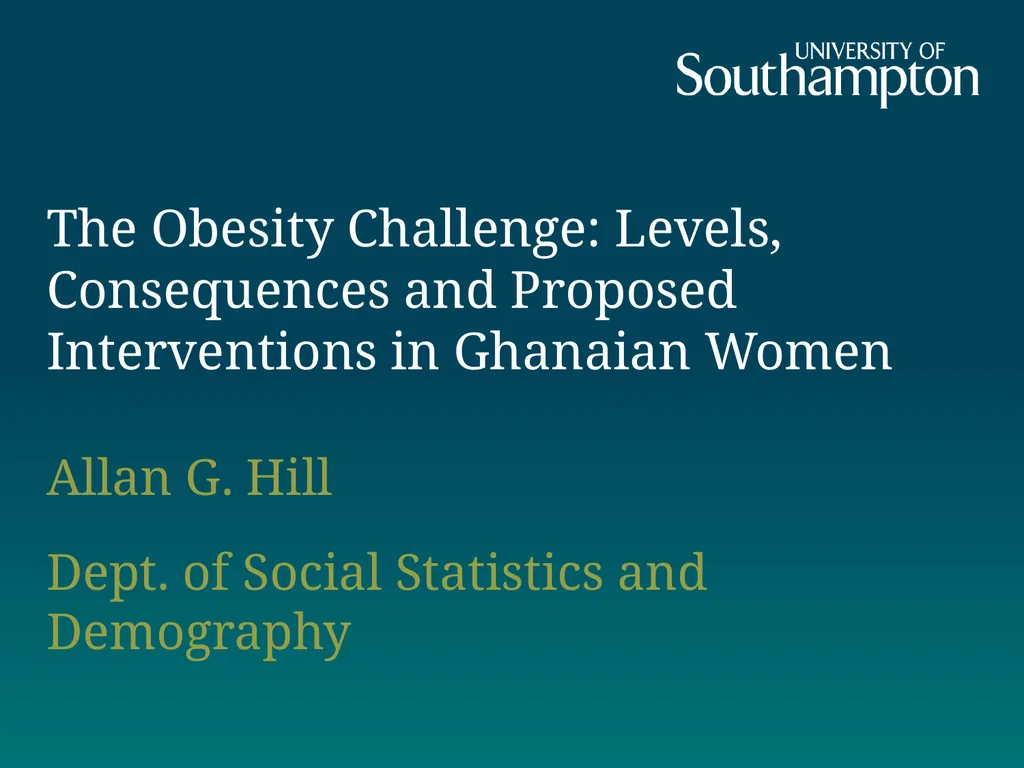
Author : pamella-moone | Published Date : 2025-05-13
Description: The Obesity Challenge: Levels, Consequences and Proposed Interventions in Ghanaian Women Allan G. Hill Dept. of Social Statistics and Demography The Broad Outlines of the Problem At much lower income levels, obesity is equally common inDownload Presentation The PPT/PDF document "" is the property of its rightful owner. Permission is granted to download and print the materials on this website for personal, non-commercial use only, and to display it on your personal computer provided you do not modify the materials and that you retain all copyright notices contained in the materials. By downloading content from our website, you accept the terms of this agreement.
Here is the link to download the presentation.
"The Obesity Challenge: Levels, Consequences and"The content belongs to its owner. You may download and print it for personal use, without modification, and keep all copyright notices. By downloading, you agree to these terms.













